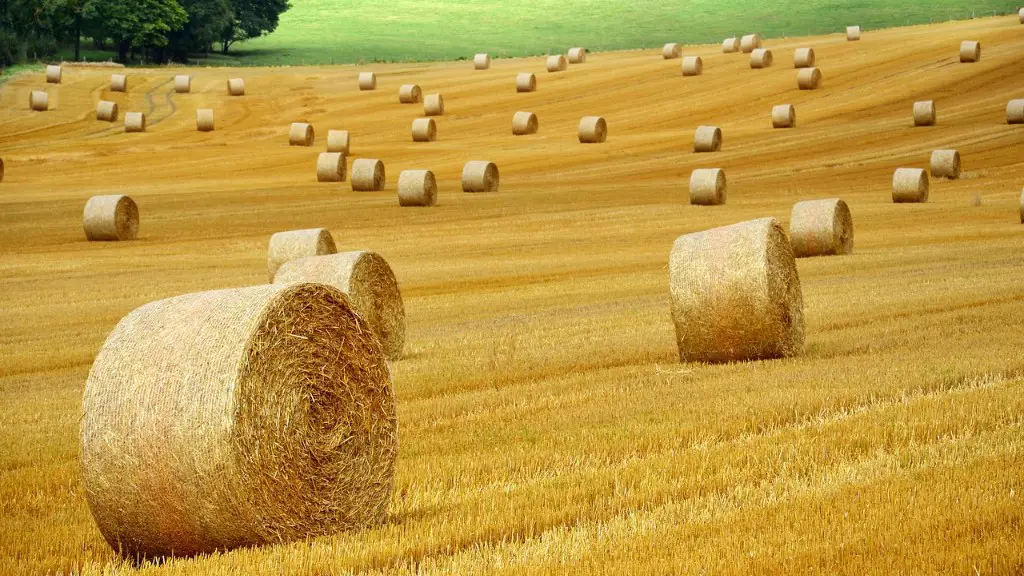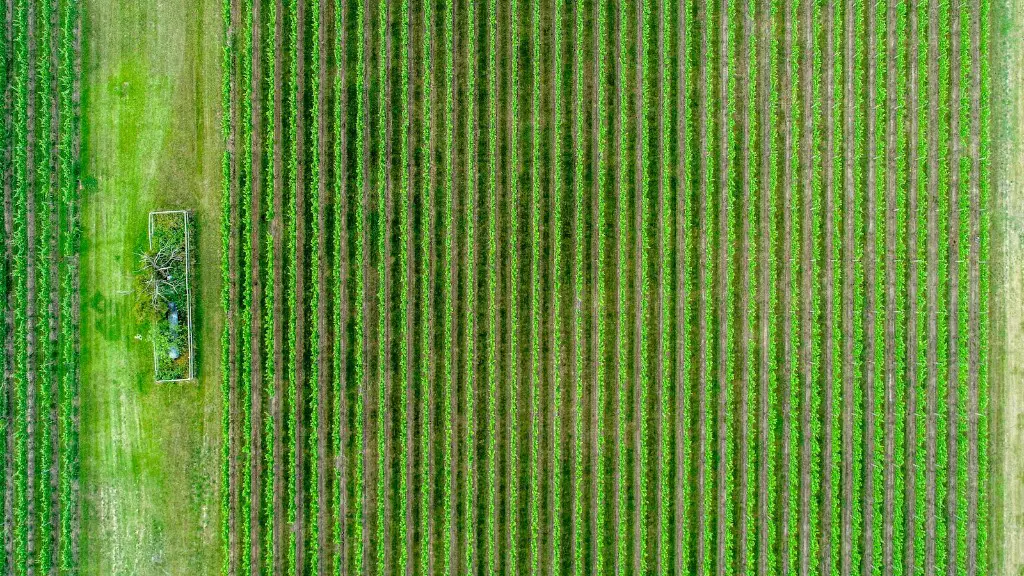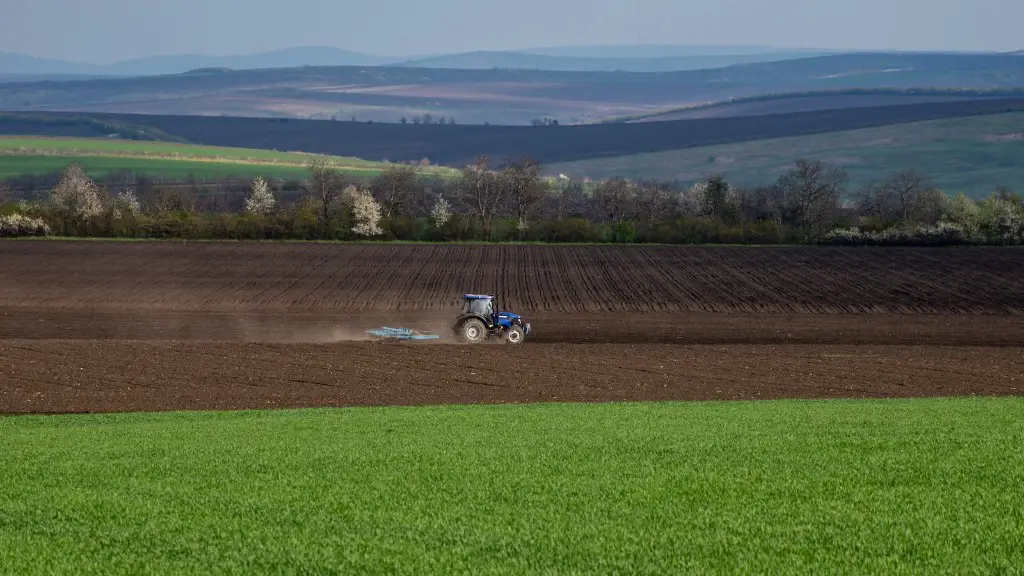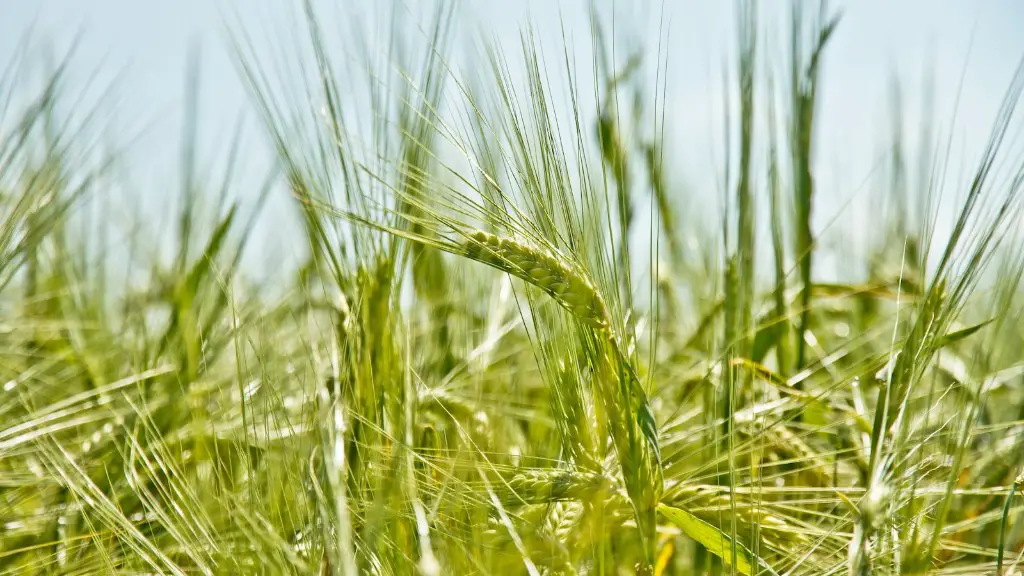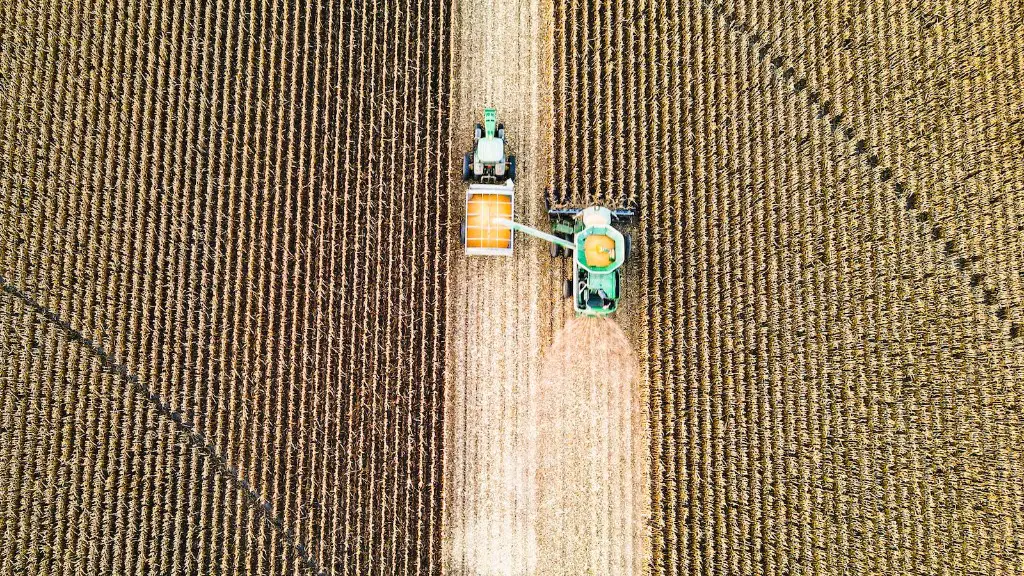The development of agriculture allowed early humans to settle in one place, which led to the development of civilizations. Agriculture allowed for the domestication of plants and animals, which led to the development of civilizations. Agriculture allowed for the growth of food, which led to the development of civilizations.
The development of agriculture was so important for early humans because it allowed them to stay in one place, which made it easier to establish communities, which led to the development of civilizations. Agriculture also allowed humans to domesticated plants and animals, which made it easier to get food and led to the development of different technologies.
Why was agriculture so important for the development of early humans?
Humans began practicing agriculture about 10,000 years ago, and it has since become the primary way that people around the world get their food. Farming enabled people to grow all the food they needed in one place, which led to a massive population growth and the development of cities and trade.
Agriculture has been a vital part of human existence for millennia. It is the process of cultivating natural resources to sustain human life and provide economic gain. Agriculture combines the creativity, imagination, and skill involved in planting crops and raising animals with modern production methods and new technologies. This has allowed us to feed a growing population and meet the demands of a modern society. However, agriculture also has a significant impact on the environment. It is one of the leading causes of deforestation, water pollution, and soil erosion. It also contributes to greenhouse gas emissions. As the world population continues to grow, it is important to find ways to produce food more sustainably.
Why is evolution importance in agriculture
Evolutionary biology can help us solve a wide range of problems that impact our lives, from agriculture to disease resistance. In agriculture, for example, understanding genetic variation and evolutionary relationships can help farmers improve crop resilience to disease. Similarly, a deeper understanding of evolution can help us develop more effective treatments for diseases. In short, evolutionary biology is a powerful tool that can help us solve many of the challenges we face in the world today.
The agricultural revolution had a number of consequences for humans. It has been linked to everything from societal inequality—a result of humans’ increased dependence on the land and fears of scarcity—to a decline in nutrition and a rise in infectious diseases contracted from domesticated animals.
What are 3 importance of agriculture?
Agriculture is critical to the health of our environment. By increasing biodiversity, we can improve soil health, water conservation, and pollinator health. This will create a healthier environment for all.
The impact of early agriculture in Mesopotamia was far-reaching. It led to a settled life as people now needed to concentrate on farming. Food production increased, leading to the emergence of city-states and urban centres. This, in turn, led to the development of trade and commerce, and the rise of civilizations.
What was the impact of agriculture on humans?
Farmers have an increased prevalence of many acute and chronic health conditions including cardiovascular and respiratory disease, arthritis, skin cancer, hearing loss, and amputations. Other health outcomes have been little studied in the agricultural workplace, such as stress and adverse reproductive outcomes.
The development of permanent homes was a key stepping stone in the evolution of human society. Prior to this, humans were nomadic, moving from place to place in search of food and shelter. The development of permanent homes allowed humans to stay in one place for longer periods of time, which ultimately led to the creation of villages. This settle lifestyle allowed people to raise larger families, as they no longer had to worry aboutmobile their children with them everywhere they went. The development of permanent homes was a key turning point in human history, and led to the development of complex societies.
What role did agriculture play in the development of society and how did that change
denser populations can be supported by more abundant food supplies and farming can tie people to their land. Small settlements can grow into towns, and towns can grow into cities. Agriculture can produce enough food that people can pursue interests other than worrying about food.
The most significant effect of the development of agriculture was the stabilization of a food supply, because it allowed for communities of people to stay in one spot and build civilizations. This allowed for the development of technology, which led to even more advances in agriculture, and allowed for the growth of cities and the rise of civilizations.
What are major events in agriculture history?
The Agricultural Extension Act of 1914 created a system of cooperative Extension services in the United States to help educate farmers about new and improved farming methods. The Capper-Volstead Act of 1922 gave legal protection to farmers who cooperated in marketing and selling their products. The Agricultural Adjustment Act of 1933 sought to stabilize farm incomes by paying farmers to reduce production. The Soil Conservation and Domestic Allotment Act of 1936 provided assistance to farmers in conserving their soils and crops. The Rural Electrification Act of 1936 helped bring electricity to rural areas. The Agricultural Adjustment Act of 1945-70 ushered in a new era of agricultural production, while the National School Lunch Act of 1946 provided nutritious meals to children in school.
Agriculture is one of the leading causes of environmental degradation. Agricultural practices contribute to climate change, deforestation, biodiversity loss, dead zones, genetic engineering, irrigation problems, pollutants, soil degradation, and waste. These issues are having a devastating impact on our environment and need to be addressed urgently.
Climate change is one of the most pressing environmental issues of our time. Agricultural practices are a major contributor to greenhouse gas emissions, which are causing the Earth to warm at an unprecedented rate. Deforestation is another major problem caused by agriculture. Trees are cleared to make way for crops and livestock, and this increases the amount of carbon dioxide in the atmosphere and contributes to climate change. Biodiversity loss is also a serious issue caused by agriculture. The loss of plant and animal species can have devastating impacts on ecosystems and the services they provide. Dead zones are another major problem caused by agriculture. These are areas of the ocean where the water is so polluted that it cannot support marine life. This is often caused by the use of fertilizers and other chemicals in agriculture.
Genetic engineering is another controversial practice used in agriculture. This involves the manipulation of genes in crops and animals to create new varieties that are more resilient to pests and diseases. However, there is concern
What were 2 benefits of the agricultural revolution to human society
The Agricultural Revolution was a time of experimentation with new crops and new methods of crop rotation. These new farming techniques gave soil time to replenish nutrients, leading to stronger crops and better agricultural output. Advancements in irrigation and drainage further increased productivity.
The development of agriculture is called a revolution because it has had radical changes on human society throughout history. They resulted in the invention of the first cities, allowed for industrialization, and caused the human population to grow massively.
What are the most importance of agriculture?
Agriculture can help reduce poverty by providing employment opportunities and raising incomes for the rural poor. In addition, agriculture can help improve food security by providing a stable food supply and improving nutrition. The World Bank Group is a leading financier of agriculture, with a focus on supporting smallholder farmers and promoting sustainable agricultural practices.
The top agricultural products vary by country, but cow milk, wheat, and corn are among the most popular globally. Cow milk is the top agricultural product in 37 countries, while wheat is the top agricultural product in 14 countries. Corn is the most produced crop globally, with 11 billion tons produced each year. Wheat and rice are also among the most popular crops, with 7609 million tons and 7567 million tons produced each year, respectively.
What is the most important factor in agriculture
Soil fertility is one of the most important factors in crop production. It has the ability to support crop production determined by the entire spectrum of its physical, chemical and biological attributes.
The increased life span of man due to food availability has led to establishment of trade due to surplus goods. This has led to people going in to other fields such as, crafts and religion. This has led to development of new religions.
Final Words
The development of agriculture was important for early humans because it allowed them to domesticated plants and animals, which led to the development of civilizations. Agriculture allowed for the growth of cities and the rise of civilizations. Agriculture allowed early humans to settle down and live in one place instead of constantly moving around to find food.
The development of agriculture provided early humans with a reliable food source, which allowed for the growth of civilizations. Agriculture also allowed for the domestication of animals, which provided another source of food and led to the development of new technologies.
